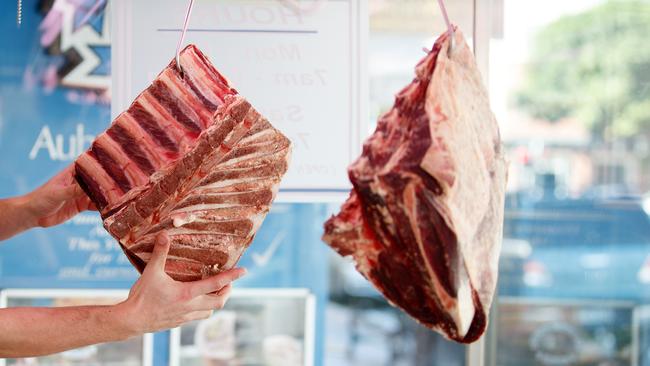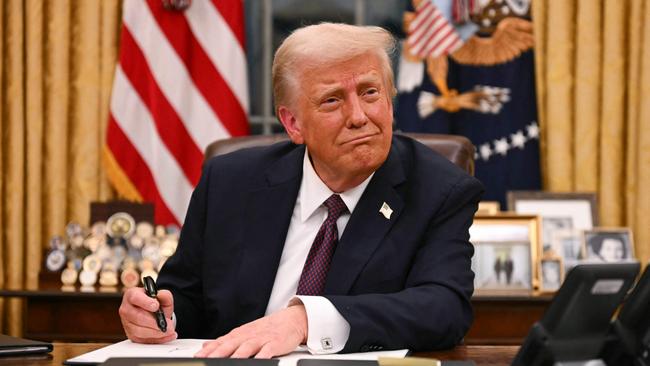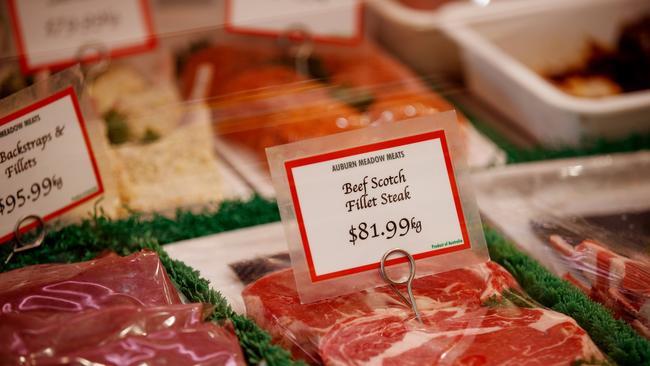‘Record high’: Australian beef production jumps despite tariff threat
Australian beef exports hit an April volume record despite the looming tariff threat.
Australia’s beef production has soared to a record high in April despite US President Donald Trump singling out beef exporters during his reciprocal tariff speech.
New figures released by the Meat and Livestock Australia global supply analyst Tim Jackson shows Australian beef exports continued to rise last month.
According to the figures beef exports for the month of April came in at 127,172 tonnes, up 21 per cent compared to this time last year.

North America remained the largest market, with exports to the United States rising 37 per cent year-on-year to 37,213 tonnes and exports to Canada rising 40 per cent to 3.322 tonnes.
Grain-fed beef exports also shot up 27 per cent year-on-year to 37,037 tonnes, namely off the back of exports to China which soared 62 per cent to 12,151 tonnes in April.
The MLA said the spike in sales in April follows a broader market trend, which started prior to the Trump administrations tariff announcement.
“The spike in April 2025 is part of a broader trend following a record-breaking 2024, where Australia exported 2.24 million tonnes of red meat to 104 countries, the highest volume ever recorded,” the MLA said in a statement to NewsWire.
“April’s volumes reflect this continued momentum supported by mature cattle and sheep herds leading to increased slaughter and supply as well as favourable global conditions and demand.”

The overall spike in sales comes despite Mr Trump announcement of wide-ranging tariffs on April 2, which he dubbed Liberation Day for the US aimed at leaving the playing field for American businesses.
In a speech announcing the tariffs, Australia’s beef exporters were singled out.
“Australia bans – and they’re wonderful people, and wonderful everything – but they ban American beef,” President Trump said.
“Yet we imported $3bn of Australian beef from them just last year alone.
“They won’t take any of our beef. They don’t want it because they don’t want it to affect their farmers. And you know, I don’t blame them, but we’re doing the same thing right now starting at midnight tonight.”
In a list of countries, Australia was 21st with a 10 per cent tariff on all goods imported into the US.
Every country was subjected to at least a 10 per cent “base rate” tariff.
Mr Trump quickly announced a 90 day pause on reciprocal tariffs to allow negotiations due to fears the US was heading for a recession, although his administration kept the 10 per cent base in place.

The MLA predicts the record high for beef sales will continue throughout 2025.
“MLA’s latest projections anticipate a 1 per cent increase in beef exports and a 13 per cent rise in mutton exports in 2025, despite a slight dip in lamb exports,” it said.
“Global supply constraints, particularly in the US and New Zealand, are expected to persist, giving Australia a competitive edge.”
While beef sales remain strong, it wasn’t all good news for all Australia’s farmers.
Sheepmeat exports eased 3 per cent year on year. This was mostly due to a 5 per cent year on year fall in mutton exports to 17,748 tonnes, while lamb exports fell 1 per cent to 31,143 tonnes.
Exports of Australian goatmeat fell 15 per cent year on year in April to 4,027 tonnes.
Despite this fall, this volume is still the second-highest April volume total on record, and exports for the year-to-date are still comfortably the highest on record.


